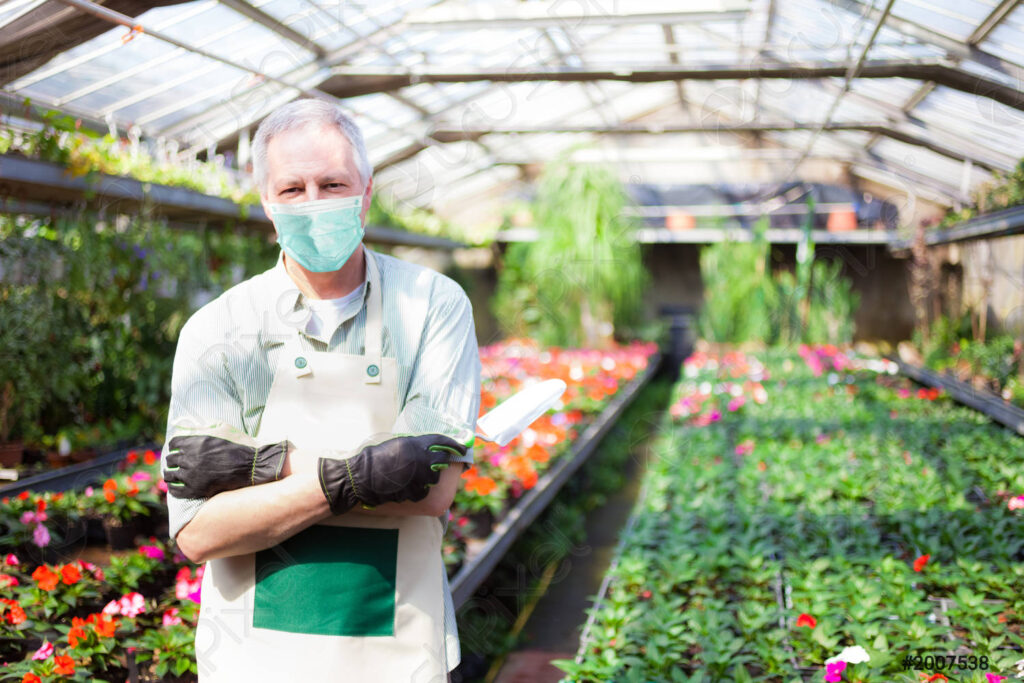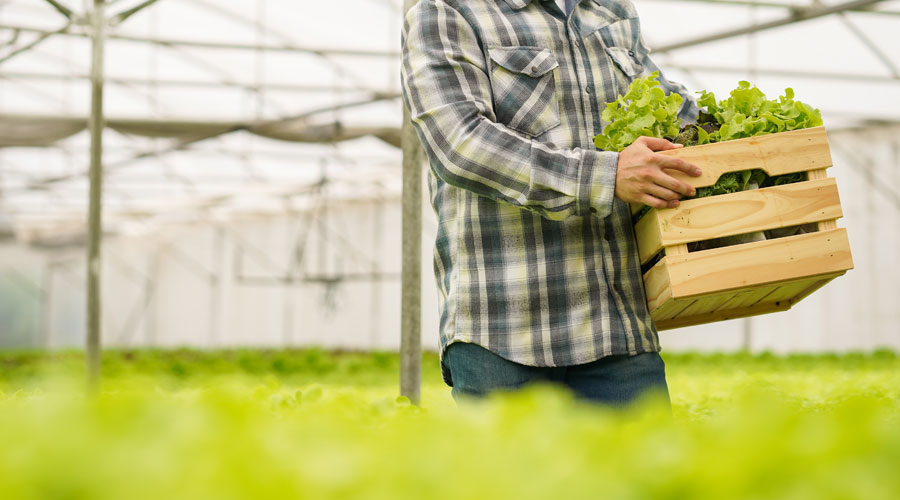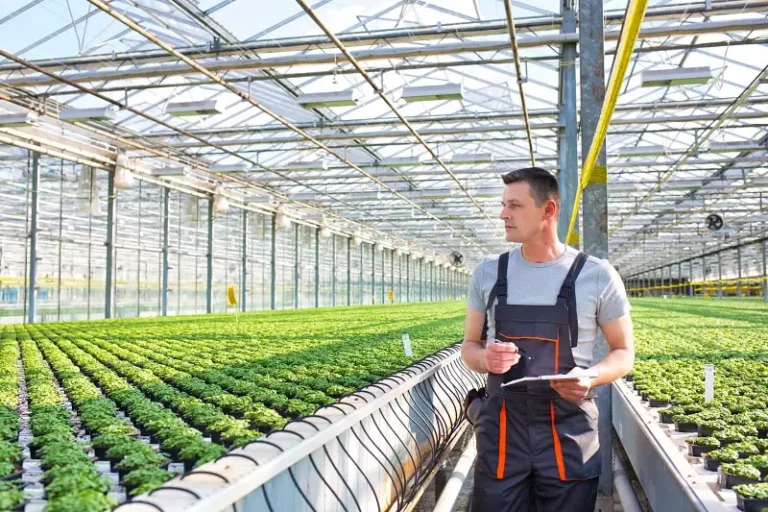In the role of a Greenhouse Grower, the job is all about nurturing plant life in controlled environments. From carefully choosing seeds to adjusting growing conditions, it’s a hands-on journey into horticulture. Greenhouse Growers manage the entire plant life cycle, tackling pests and ensuring a successful harvest.
Their expertise lies in understanding plants, being detail-oriented, and solving problems along the way. Whether it’s planting or quality control, Greenhouse Growers contribute to sustainable agriculture. Every day brings a chance to foster the growth of diverse and vibrant plant life, making this job an exciting and essential part of the agricultural world.
What Are The Responsibilities of a Greenhouse Grower?

Crop Planning and Management
Crop Rotation Strategies: Greenhouse growers are responsible for planning and implementing effective crop rotation schedules to optimize soil health and prevent disease.
Seasonal Planning: They need to plan and manage the cultivation of crops based on seasonal variations, ensuring a continuous and efficient production cycle.
Variety Selection: Greenhouse growers must choose appropriate plant varieties based on factors such as market demand, climate, and soil conditions.
Seed and Plant Propagation
Seed Selection and Procurement: Greenhouse growers are involved in selecting high-quality seeds and procuring them from reliable suppliers.
Germination Techniques: They use various germination techniques to initiate the growth of seeds, ensuring a healthy and robust start for the plants.
Propagation Methods: Greenhouse growers employ different propagation methods, such as cuttings or grafting, to reproduce plants and maintain genetic characteristics.
Monitoring and Controlling Growing Conditions
Climate Control: Greenhouse growers must monitor and adjust temperature, humidity, and ventilation systems to create an optimal environment for plant growth.
Irrigation Management: They are responsible for ensuring proper water distribution and irrigation, using advanced systems to avoid over-watering or drought stress.
Lighting Considerations: Greenhouse growers may utilize supplemental lighting to extend daylight hours, promoting photosynthesis and growth during periods of low natural light.
Pest and Disease Management
Identification of Pests and Diseases: Greenhouse growers need to identify potential threats to crops, including pests and diseases, through regular monitoring.
Integrated Pest Management (IPM): They implement IPM strategies, which may involve biological control, cultural practices, and minimal pesticide use to maintain a balanced and sustainable growing environment.
Quarantine Procedures: Greenhouse growers establish quarantine measures to prevent the introduction and spread of pests and diseases within the greenhouse.
Harvesting and Quality Control
Harvest Timing: Greenhouse growers must determine the optimal timing for harvesting crops to ensure peak quality and yield.
Post-Harvest Handling: They are involved in proper post-harvest handling procedures, including cleaning, sorting, and packaging, to maintain the freshness and quality of the produce.
Quality Assurance: Greenhouse growers implement rigorous quality control measures to meet market standards, ensuring that only high-quality products reach consumers.
What Key Skills and Qualities Make a Successful Greenhouse Grower?
Horticultural Knowledge
Plant Biology Expertise: A deep understanding of plant biology, including growth cycles, nutrient requirements, and physiological processes, is crucial for effective greenhouse management.
Soil Science: Knowledge of soil composition and fertility is essential to ensure optimal conditions for plant growth and to make informed decisions about fertilization.
Pest and Disease Identification: The ability to identify and understand common pests and diseases enables greenhouse growers to implement preventive measures and address issues promptly.
Attention to Detail
Observational Skills: Greenhouse growers must keenly observe plant health, identifying subtle changes in color, size, or texture that may indicate potential issues.
Precision in Task Execution: Attention to detail is vital during tasks such as seed sowing, transplanting, and harvesting to ensure the accurate execution of each step for optimal results.
Record-Keeping: Maintaining meticulous records of planting dates, growth patterns, and pest occurrences allows growers to track trends and make informed decisions.
Problem-Solving Abilities
Adaptability: Greenhouse growers must adapt to changing conditions, such as unexpected weather patterns or fluctuations in pest populations, to mitigate potential risks.
Critical Thinking: The ability to analyze complex issues, such as crop diseases or suboptimal growing conditions, and devise effective solutions is crucial for successful greenhouse management.
Quick Decision-Making: Greenhouse growers often face time-sensitive decisions, requiring the ability to make quick and informed choices to prevent or address problems.
Physical Stamina
Manual Labor: Greenhouse work often involves tasks like lifting, bending, and carrying, requiring physical strength and stamina.
Long Hours: Planting, harvesting, and maintenance activities may demand long hours, and physical endurance is essential to sustain productivity throughout the workday.
Outdoor Work: In addition to greenhouse tasks, outdoor responsibilities, such as fieldwork or landscaping, may require physical fitness and stamina.
Team Collaboration
Communication Skills: Effective communication with team members, supervisors, and other stakeholders is crucial for coordinated efforts and smooth workflow.
Collaborative Decision-Making: Greenhouse growers often work in teams to make decisions about crop planning, resource allocation, and problem-solving.
Training and Mentorship: Experienced greenhouse growers may play a role in training and mentoring new team members, emphasizing the importance of collaboration for success.
Salary and Compensation
Greenhouse growers in the UK receive an average annual salary of £20,687, with variations influenced by factors such as experience, location, and employer. Experience plays a pivotal role in determining earnings, with a greenhouse grower boasting five years of expertise potentially earning £25,000 annually, in contrast to a novice earning around £18,000 per year.
Location also significantly impacts salaries, with those working in London commanding higher earnings compared to their counterparts in rural areas. For instance, a greenhouse grower in London may receive £23,000 annually, while a counterpart in a rural setting might earn around £19,000 per year.
Moreover, the choice of employer contributes to the salary range, as growers with positions in large commercial nurseries often earn more than those employed in small, family-owned nurseries.
Beyond base salaries, greenhouse growers may qualify for additional forms of compensation, including bonuses, overtime pay, and various benefits. Bonuses are typically performance-based, while overtime pay compensates for additional work hours. Benefits encompass health insurance, dental coverage, vision insurance, and retirement plans.
The salary range for greenhouse growers in the UK, classified by experience, is outlined below
| Experience | Salary Range |
| No experience | £18,000 – £20,000 |
| 1-2 years of experience | £20,000 – £22,000 |
| 3-5 years of experience | £22,000 – £25,000 |
| 5+ years of experience | £25,000 – £30,000 |
What Degrees and Training Are Essential for a Successful Career as a Greenhouse Grower?

Degrees and Certifications
Many Greenhouse Growers hold degrees in horticulture, botany, or a related field. These educational backgrounds provide a solid foundation in plant science, soil management, and pest control.
Degrees in agriculture, with a focus on crop production or agronomy, also offer valuable knowledge for Greenhouse Growers, covering broader aspects of farming practices.
Some Greenhouse Growers pursue industry-specific certifications, such as Certified Professional Horticulturist (CPH), which can enhance credibility and demonstrate expertise to employers.
On-the-Job Training
On-the-job training is crucial for Greenhouse Growers to apply theoretical knowledge to real-world scenarios. Hands-on experience in tasks like seed propagation, irrigation management, and pest control is invaluable.
Working under experienced growers provides insights into industry best practices and allows for the transfer of practical skills. Mentorship programs within the greenhouse or agricultural community are common.
On-the-job training not only imparts technical skills but also helps develop problem-solving abilities and adaptability, key traits for successful greenhouse management.
Continuing Education in Horticulture
Greenhouse Growers benefit from attending workshops and seminars that cover the latest developments in horticulture, technology, and sustainable practices.
The availability of online courses allows growers to pursue further education while working. Courses on specialized topics, such as greenhouse climate control or integrated pest management, can enhance expertise.
Joining horticultural or agricultural associations provides access to conferences and educational events, fostering networking opportunities and exposure to emerging trends.
What Growth Awaits Greenhouse Growers in Agriculture?
Job Growth in the Greenhouse Industry
The greenhouse industry has been experiencing significant growth due to increasing demand for locally sourced and sustainable produce.
Advancements in greenhouse technologies, such as automated climate control and precision farming, contribute to job growth as skilled professionals are needed to operate and manage these systems.
Shifting consumer preferences towards organic and specialty crops further contribute to job opportunities within the greenhouse sector.
Specializations and Career Paths
Greenhouse Growers can specialize in specific crops, such as flowers, vegetables, or herbs, based on market demand and personal interests.
Some professionals may choose a career path focused on research and development, working on innovative techniques, new plant varieties, or sustainable growing practices.
Opportunities exist for individuals to start their own greenhouse operations, managing everything from crop planning to marketing, providing a path for entrepreneurial growth.
Opportunities for Advancement
Experienced Greenhouse Growers can advance to supervisory or management positions, overseeing larger operations or teams.
Those with extensive knowledge in greenhouse management may pursue careers as consultants, offering advice to other growers or businesses in the agricultural sector.
Advancement opportunities extend to leadership roles within industry associations or organizations, contributing to the development and promotion of best practices.
FAQ
What is the role of a head grower?
A head grower oversees plant cultivation, managing tasks from seed to harvest. They coordinate cultivation processes, ensuring optimal conditions for plant growth, and often lead a team of growers.
What skills do you need to be a grower?
Being a successful grower requires horticultural knowledge, attention to detail, problem-solving abilities, physical stamina, and effective collaboration within a team.
What makes a good grower?
A good grower possesses a deep understanding of plant biology, is attentive to details in cultivation, adept at solving issues, is physically resilient, and collaborates seamlessly within a team.
What is the description of a grower?
A grower is responsible for cultivating plants, managing growing conditions, addressing issues like pests, and ensuring a successful harvest, contributing to sustainable agriculture.
What is a plant grower?
A plant grower is an individual engaged in cultivating plants, overseeing their growth from seeds to maturity, and ensuring optimal conditions for a healthy harvest.
What are grower feeds?
Grower feeds refer to nutrient-rich formulations designed to support the specific nutritional needs of plants during their growth phase, promoting healthy development.
How long is a grower?
The term “grower” can refer to a stage in plant development or a professional role; its duration varies based on context.
What is the difference between a farmer and a grower?
While both farmers and growers cultivate plants, farmers typically manage larger agricultural operations involving diverse crops and livestock, whereas growers often specialize in cultivating specific plants.
Is a grower a farmer?
Yes, a grower can be considered a type of farmer, specializing in the cultivation of plants within a more focused scope or specific industry.
Final thoughts
On the whole, being a Greenhouse Grower is more than a job; it’s a journey of nurturing and cultivating plant life. From selecting seeds to overseeing the harvest, Greenhouse Growers play a vital role in sustainable agriculture.
Their attention to detail and problem-solving skills make them essential contributors to the vibrant world of horticulture. As they continue to foster the growth of diverse plant life, each day brings new opportunities and challenges.
It’s a rewarding profession that not only impacts the environment positively but also allows for personal and professional growth. Greenhouse Growers are the caretakers of our green future.

